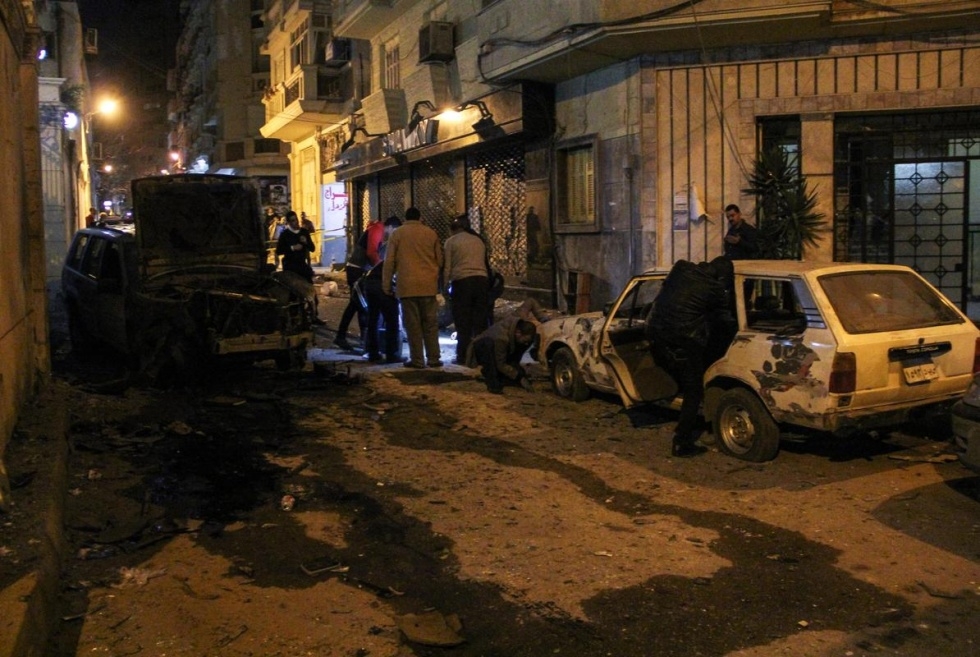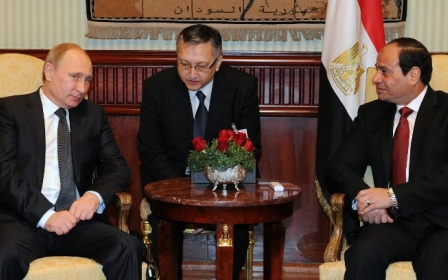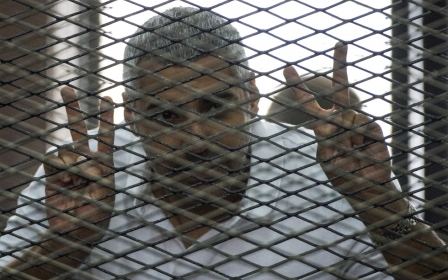3 bombs explode in Alexandria as Sinai militants admit beheading 10 'spies'

Three police stations in Alexandria were bombed in a suspected militant attack on Tuesday, wounding 10 people, an interior ministry official said.
Two other bombs were also detonated in the eastern part of the city, but there were no injuries, said Majaor General Amin Ezz al-Din, assistant interior minister for Alexandria.
Tuesday's police station attacks came after police diffused four explosives near a mosque in downtown Alexandria on Friday. The bombs were thought to have been planted at a site where supporters of Egyptian president Abdel Fattah al-Sisi were planning to hold a rally.
Also on Tuesday, Welayat Sinai - a militant group based in the north-eastern region of Sinai who have declared allegiance to the Islamic State group - said in a video posted online that it had beheaded 10 men for spying on behalf of Israel and the Egyptian military.
The video, which shows the militants beheading the men and dumping their bodies by the side of a road, also features confessions by four of the men that they had cooperated with the Israeli intelligence gathering body Mossad and the Egyptian army and given them information on "jihadists" in Sinai.
Unrest in Egypt has deepened since the elected government of the Muslim Brotherhood-affiliated Mohamed Morsi was overthrown by the army in July 2013. The ensuing crackdown on Egypt's largest opposition group led to thousands of deaths and the imprisonment of hundreds of opponents of the government.
The country has also experienced frequent small scale militant attacks, with many blaming Welayat Sinai, the Sinai-based militant group formerly known as Ansar Bait al-Maqdis.
Tuesday's bomb attacks will increase anxieties about the security situation surrounding an investment conference that will be hosted next month in the resort city of Sharm el-Sheikh, in the southern Sinai Peninsula.
Some analysts have said Egypt is undergoing the worst period of violence it has seen in decades although it is difficult to judge empirically with a lack of clear data coming out of Egypt, Michelle Dunne, senior associate for Carnegie Endowment for International Peace's Middle East programme, said last year.
"It is difficult to figure out how many Egyptian have been killed, injured or imprisoned during the country's recent turmoil due to the government's increased opacity since the military takeover, intimidation of international groups tracking developments and rifts in the Egyptian human rights community," she wrote.
The data that does exist, she said, indicates that the country is "a far more violent and unstable place than it was before July 2013 or indeed has been for decades."
"It's a serious human rights situation and at the same time. It's a serious terrorism situation," Dunne said.
New MEE newsletter: Jerusalem Dispatch
Sign up to get the latest insights and analysis on Israel-Palestine, alongside Turkey Unpacked and other MEE newsletters
Middle East Eye delivers independent and unrivalled coverage and analysis of the Middle East, North Africa and beyond. To learn more about republishing this content and the associated fees, please fill out this form. More about MEE can be found here.




